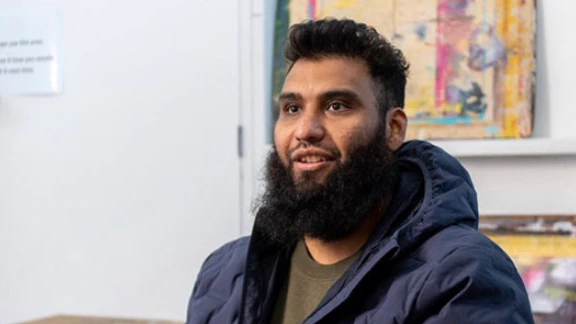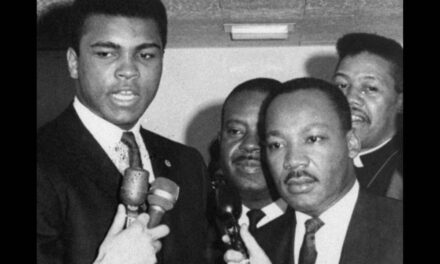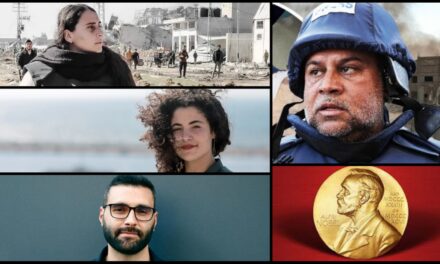Annas Davids is speaking up about depression and anxiety in the Muslim community.(Supplied: Annas Davids)
Confused, isolated and suicidal was how Annas Davids felt when he was mentally at his “lowest point in life”.
Warning: This story contains references to suicide
But it was when he attended a funeral for a Muslim man in his community, who had taken his own life, that he became angry.
“[Suicide] wasn’t talked about in the community at all,” Mr Davids said.
“It would boil my blood that no sheikh or imam was talking about it during the khutbah (Islamic sermon) or even on social media.”
The 26-year-old youth worker from Perth is just one of many Muslim men who have struggled to come to terms with their mental health issues.
When he spoke up and shared his story on social media, he received a “negative reaction” from people in his community.
“I had people tell me that I should ‘man up’ or that I needed to pray more because my faith was low.”
He believes this was partly due to the cultural stigma around men and mental health in the Muslim community.
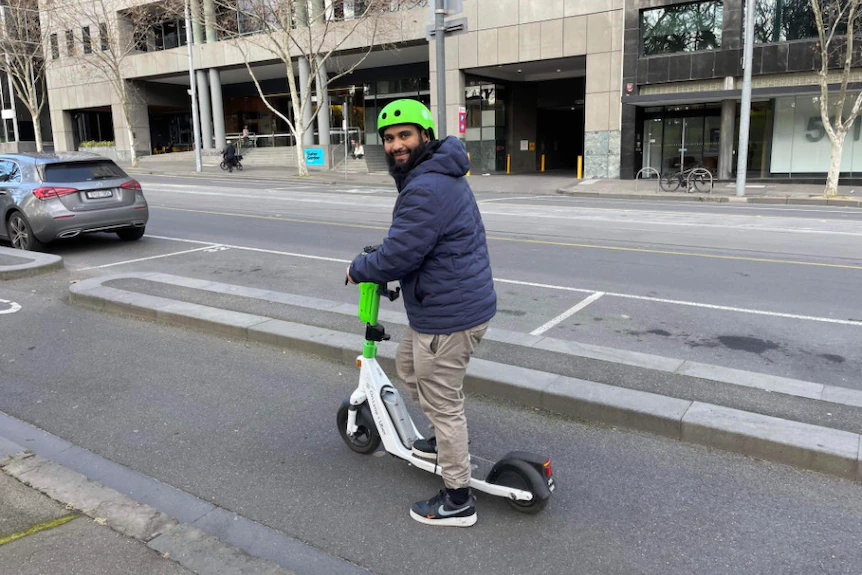
Mr Davids has now come to terms with his mental health journey.(Supplied: Annas Davids)
After the sudden passing of his grandfather, Mr Davids struggled to deal with his grief.
“[Back then] I would cry in my room because I felt suicidal and I had no-one to talk to about my problems because I didn’t even understand what was going on with myself,” he said.
In 2018, he was diagnosed with depression and social anxiety, and this year he was also diagnosed with ADHD.
He’s since come to terms with his mental health and said he understood everybody’s experiences with grief were different.
He said a lack of understanding meant some people thought there was “something completely wrong” if you struggled with your mental health.
But, he doesn’t feel ashamed about his diagnosis.
‘Leaders from all faiths should not wait for cases of suicide’
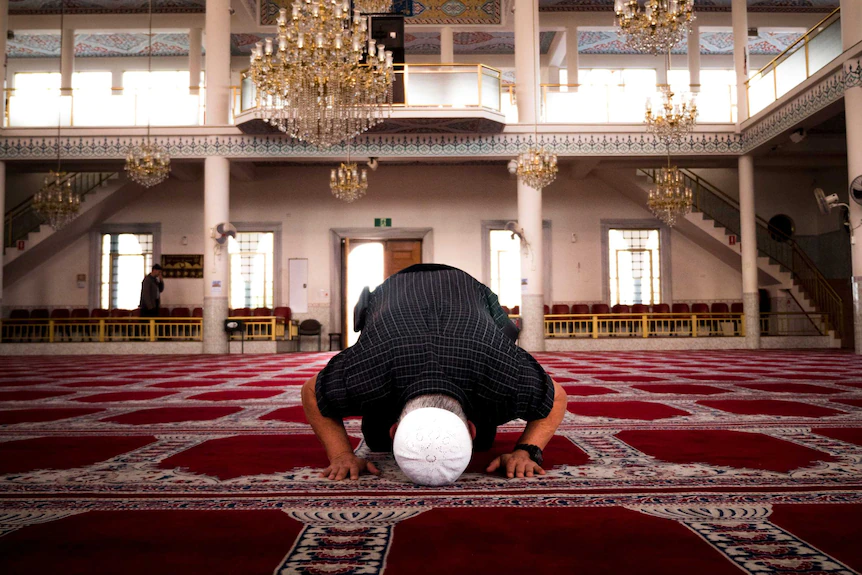
While Mr Davids didn’t have any religious leaders to turn to during his time of need, Sheikh Alaa Elzokm of the Elsedeaq Heidelberg Mosque in Victoria has been vocal about the topic.
“It is very concerning to see both cases of people who cannot share their experiences because of fear that they would be identified in the community as ‘not normal people’ and [that] some religious leaders wouldn’t address such cases in the community after knowing about [them],” he said.
He said more conversations were needed in order to help break the silence.
“I believe that religious leaders from all faiths should not wait for cases of suicide to talk about mental wellbeing,” Sheikh Elzokm said.
“We as religious leaders need to be more frequent with our reminders in order to be able to break the stigma.”
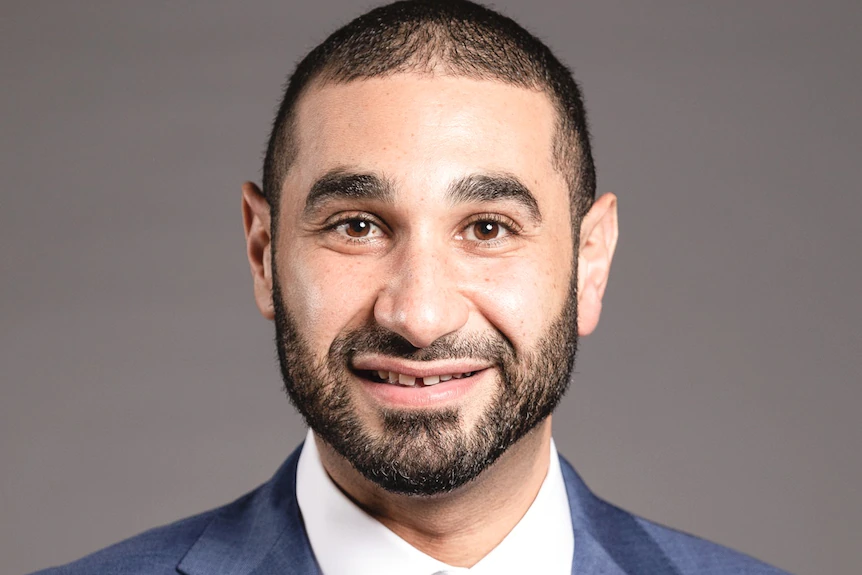
Sheikh Alaa Elzokm says more conversations need to be had by religious leaders to help break the silence.(Supplied: Alaa Elzokm)
Mr Davids echoed that sentiment and said thoughts of suicide should be talked about openly without shame.
“We don’t talk about the struggle the community is facing … it is happening more and more but unfortunately we are still silent about it,” Mr Davids said.
Sheikh Elzokm said the peak of the pandemic was an especially difficult time, with many dealing with isolation, grief and not being able to interact with their community due to mosques being closed.
While part of the responsibility falls on religious leaders, he said governments should also work more with communities that are most at risk.
Muslim Australians at risk of poor mental health
Research published in the journal of Child and Family Studies in 2022 examined Muslim mental health in Australia.
It found psychological distress levels of Australian Muslim adolescents were 34 per cent higher than adolescents in the general community.
The Centre for Muslim Wellbeing (CMW) says while there are some studies and abundant anecdotal evidence on these issues, there is a lack of minority-specific statistics on Muslim mental health.
Beyond Blue research, which doesn’t include minority groups, shows on average one in eight men in Australia will experience depression and one in five will experience anxiety.
It also says men make up an average of seven out of every nine suicides each day in Australia.
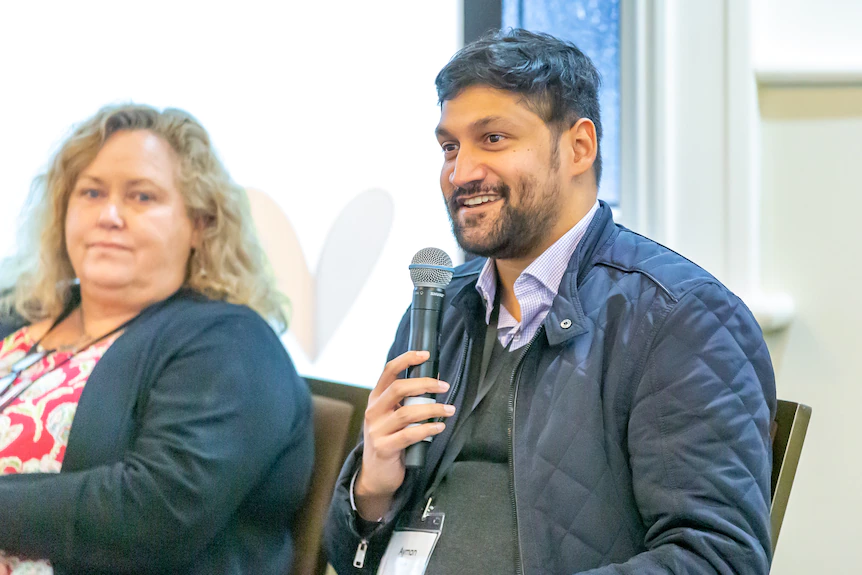
Ayman Islam says stigma associated with seeking support within the community means Muslims access services late.(Supplied: Ayman Islam)
CMW executive officer Ayman Islam said navigating a complicated healthcare system, combined with additional barriers, such as language or cultural stigma, may make it even harder for Muslims to seek help.
Mr Islam said the stigma associated with seeking help meant Muslims tended to access services only at the point of crisis.
“Usually, they’ll present to the hospital very, very late. They don’t often get the help they need,” he said.
With an already overloaded healthcare system, minority groups are at an increased risk, especially if they don’t find mental health professionals who understand their cultural and religious nuances, Mr Islam said.
But he said opening up was becoming less taboo for the younger generation.
Racism and negative media stereotypes also play a significant role in affecting the mental health of Muslims.
Rita Jabri Markwell from the Australian Muslim Advocacy Network said things like conflating terrorism with the Muslim community had a terrible impact.
“There are people in our community who’ve been the victim of terrorism overseas, then come to Australia and have been called a terrorist because they are Muslim, and denigrated and abused in public and at work,” Ms Jabri Markwell said.
“The burden shouldn’t be on these people to become more ‘resilient’ — they should be able to just be themselves and flourish.”
‘Doors of hope’ always open
Sheikh Elzokm believes speaking up about these issues will help the Muslim community as a whole — in fact, he said taking care of mental health is part of religious practice.
“It is absolutely the time to encourage those who have been affected mentally to talk about their experiences and challenges,” he said.
“There are always doors of hope … let’s all speak up about our challenges and experiences without any feeling of fear or embarrassment.”
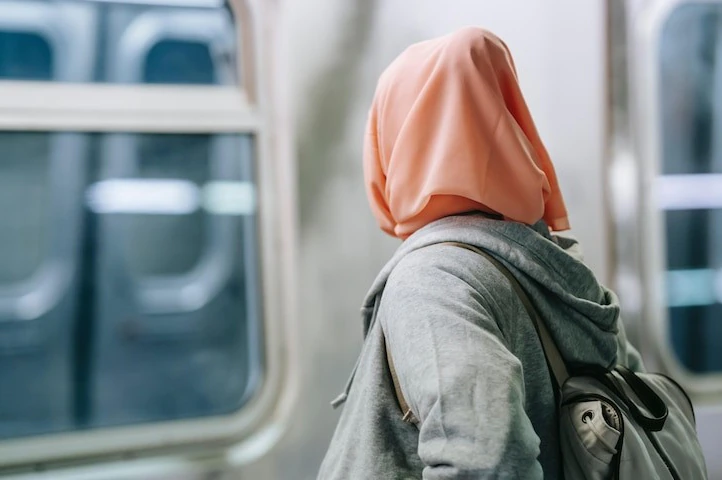
Muslim advocacy groups say negative media stereotypes can affect mental health.(Pexels: Keira Burton)
The Centre for Muslim Wellbeing has begun to build a database of practitioners who are culturally safe and responsive to help Muslims more easily access help.
Mission of Hope has also created Hayat Line, which is a free and confidential crisis support line for Muslims in Australia.
Annas Davids said his advice to Muslims who were experiencing suicidal thoughts was to find a trusted person to talk to.
“I know that’s the hardest part, but I promise you once you find that one trustworthy person it truly gets better from there,” he said.
“Your feelings and your struggles are extremely valid, don’t let anyone tell you otherwise.”
